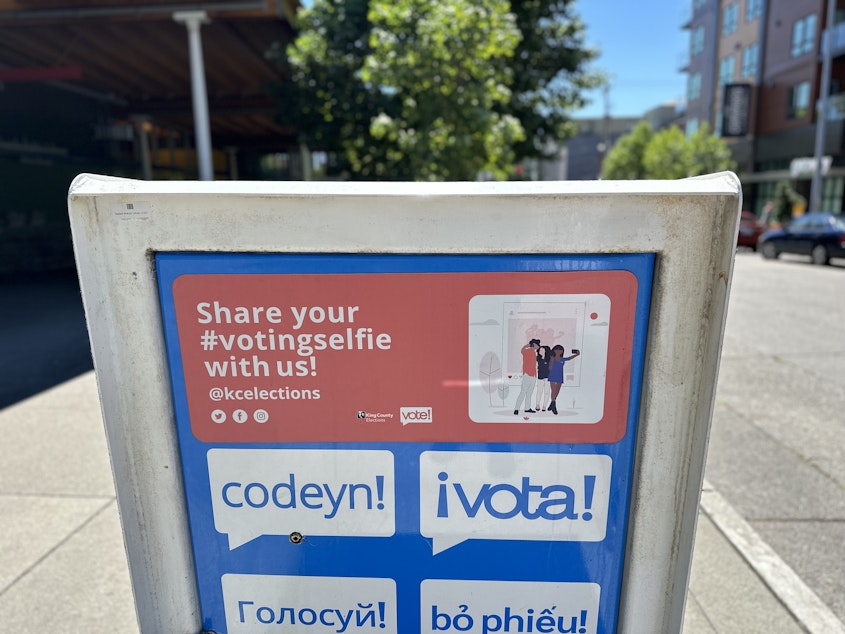Does Washington state's ballot signature rule disenfranchise voters?

King County Superior Court Judge Mark Larrañaga heard a case Tuesday challenging Washington state’s ballot verification system as discriminatory, but made no ruling.
At issue is the rule in Washington state's vote-by-mail system, where a ballot must be signed. By law, that signature must be checked to make sure it matches the signature a voter used when they registered before their vote is counted.
Election officials say the signature verification step is needed to prevent election fraud. But progressive groups that brought the lawsuit argue the verification process is unconstitutional under state law because it disenfranchises voters.
“Signature matching has stripped more than 170,000 Washington voters of the franchise just since 2016, with a particularly appalling disparate impact on younger and minority voters,” said Perkins Coie lawyer Kevin Hamilton who represents the plaintiffs, which include Vet Voice Foundation, El Centro de la Raza, and Washington Bus.
A state audit of the 2020 election found that Black voter signatures were rejected at a much higher rate, for example, than white voter ballots.
In making the case for getting rid of signature verification, Hamilton also rejected the idea that voter fraud is a proven concern.
Sponsored
“You won't find anyone contending that the approximately 24,000 ballots rejected every election are actually in fact, fraudulent,” he said.
On the other side, state attorney William McGinty representing Secretary of State Steve Hobbs, said signature verification works for “the vast majority of 99.5 percent of voters," and that it's the best available system that ensures both easy voter access to ballots and ballot security.
“Signature verification is the best way to balance those two things against each other,” McGinty said.
He also argued voter fraud is a real concern. McGinty pointed to the frequency of fraudulent signatures on state initiative petitions and showed, for example, how easy it is to print out a replacement ballot for anyone in the state, using the example of Gov. Jay Inslee.
“The reason why it's OK to do this is because we use signature verification on the back end in order to make sure that that ballot is being sent in by the voter whose name is on the ballot,” he said.
Sponsored
That said, the defense also argued that Secretary of State Hobbs is taking steps to make sure fewer signatures are rejected in the future.
Those reforms would include making it harder to reject a signature without "multiple, significant and obvious discrepancies" with the signature on file. Hobbs also wants to make it easier for voters to “cure” ballots, which is the process for having a ballot count after a signature has been initially rejected.
In Tuesday's hearing, both sides asked Judge Mark Larrañaga to make a "summary judgment" for them, and not go to trial. Larrañaga didn't make any decision today, but said he expected to "get an order out within the next two weeks."




